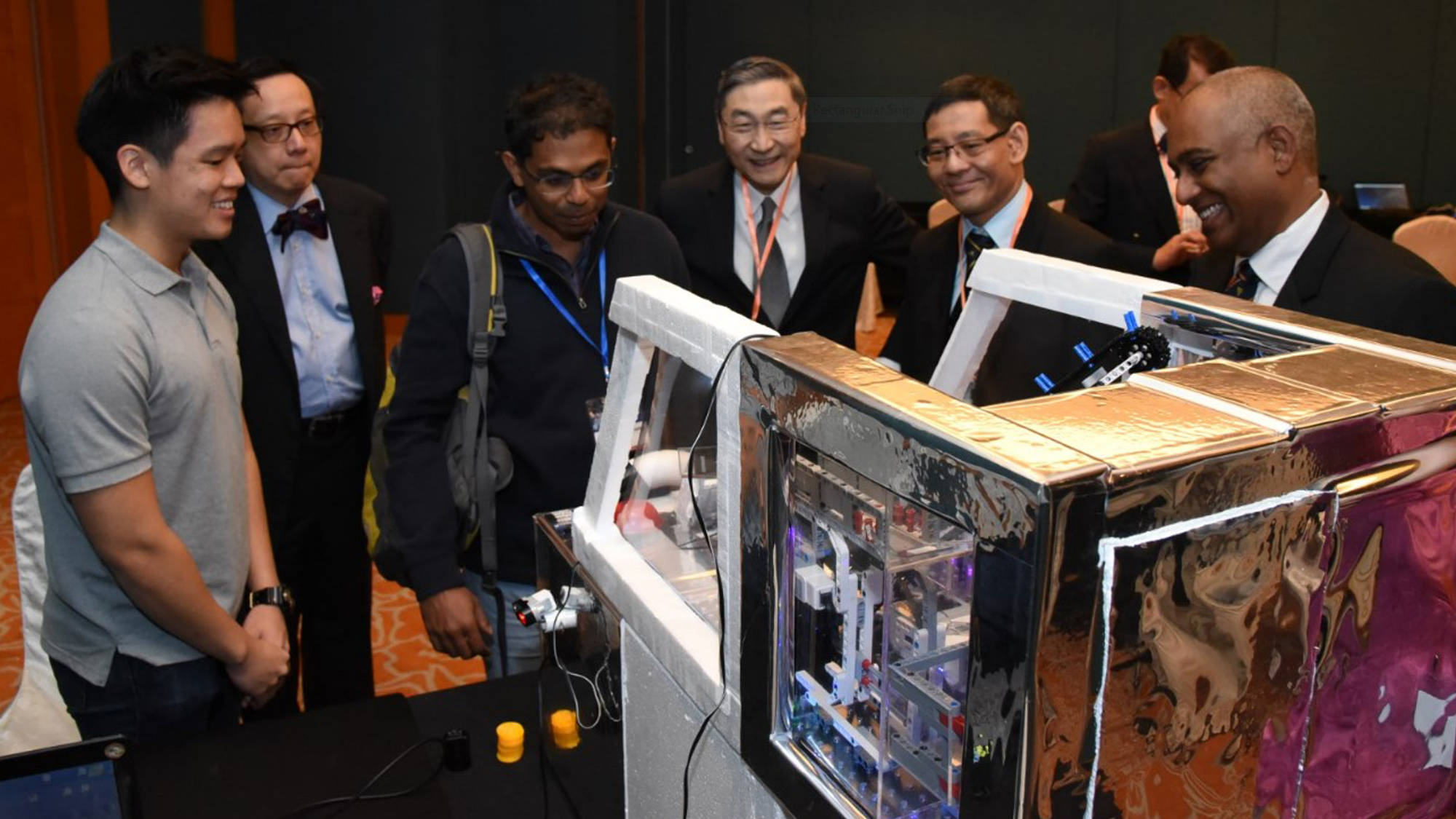15th APMEC Looks At Technology’s Role in Medical Education
Asia Pacific Medical Education Conference (APMEC) had its humble beginnings way back in 2003 when the conference series was initiated by the then – Medical Education Unit MEU) – now referred to as the Centre for Medical Education (CenMED), Yong Loo Lin School of Medicine, National University of Singapore. APMEC has progressed considerably over the years, starting with only about 100 participants. The 2018 conference saw a phenomenal increase in the number of participants to more than 13-fold, a clear reflection that the series has strong appeal and is indeed serving the needs of our community of educational scholars, not only in our region, but also beyond.
The chosen ‘theme’ for APMEC 2018 was “Technology: Enhancing Education for Improvement of Patient Care” Trend, Issues, Priorities, Strategies). Firstly, it reflects the interdependence of education and practice in patient care. It also seemed to present a strong appeal to our participants, reflected in the substantial increase in the number of participants attending APMEC 2018! Moreover, technology-enhanced learning is now omnipresent in education and we need to educate, train, equip and transform a generation of digital natives to become the new generation of healthcare
practitioners who readily and literally obtain information (text, images, live videos) at the click of a button! Technology has now become so pervasive in practically every aspect of our lives. Thus, it was in such an educational context that the theme was specially selected for APMEC 2018.
Although the theme for APMEC 2018 tends to suggest that “… technology [including artificial intelligence] and science will radically transform the practice of medicine in the future…” (Hooi, Samarasekera and Pan, 2017) a balanced view on the role of technology in the education and training of future healthcare professionals must prevail. Otherwise, we run the risk of educating and training healthcare practitioners who are so highly dependent on technology for patient care, and who have forgotten the need for the comforting touch of a physician’s hand and the consoling and re-assuring voice of the physician when a fellow human being is ill!
“When we are sick and most vulnerable, human beings will still prefer to engage and “trust” a fellow human being.” (Hooi, Samarasekera and Pan, 2017)
 ” />
” />
The APMEC 2018 Programme had been organised to provide participants with an update of how modern day technology, including artificial intelligence, can supplement and complement the clinical expertise of healthcare practitioners, especially in respect of “soft” skills in the attitudes (affective) domain; such a combination (i.e. technology plus human responses) can be expected to optimise health benefits to patients. Feedback from some of our participants (see quote above) provide us with ample evidence that APMEC 2018 (especially our keynote speakers) have enlightened participants with a fair and balanced view of the role of technology in the education and training of healthcare practitioners in the 21st century.
A key highlight of APMEC 2018 was the formation of the Asia-Pacific Bio-medical Science Educators Association Leadership Forum on “The Future of Medical Education in a Technology Advanced World. The forum presenters included the deans of medical schools from Singapore, Malaysia, Philippines, the Senior Vice President of ACGMEI and the head of the Australian Workforce Development Agency.
“The conference keynote and plenary lectures were very good. Inspiring and insightful speakers.” “Effective organised- good range of sessions…”
Another key feature was the launch of the Learning Lounge, which showcased the latest technology in medical education. It also highlighted NUS Engineering student innovations in Robotics, which could be used to assist the elderly in our communities to engage in daily activities. Concurrently, the third volume of The Asia Pacific Scholar was launched during the conference. More than 200 abstracts were presented during APMEC 2018 (see table below for the winners and runner-ups for Free Communication and Best Abstract for Poster Presentation).
APMEC 2018 had the overwhelming support of participants. A balanced view on the role of technology in the education and training of future healthcare practitioners was presented to participants by keynote and plenary speakers.
| Award | Name | Abstract Title | Institution, Country |
| Winner | Elise Paradis | An Ethnographic Study of Health Information Technology Use in Three Intensive Care Units |
University of Toronto, Canada |
| Runner-up | Sabrina Lau | Burnout in Internal Medicine Residents: A Study on Prevalence and Factors in a Three-year Junior Residency Program |
Tan Tock Seng Hospital, Singapore |
| Winner | Gayathri Devi Nadarajan | Simulated Task Trainer to Teach Minor Surgical Procedures – Moving From ‘Learn One, See One, Do One’ To ‘Learn One, See One, Practice One, Do One’. |
Changi General Hospital, Singapore |
| Runner-up | Chee-Chew Yip | Teaching the Torchlight Eye Screening Test (TEST) To Nurses and Opticians to do Community Eye Screening: Is it Feasible? | Khoo Teck Puat Hospital, Singapore |
